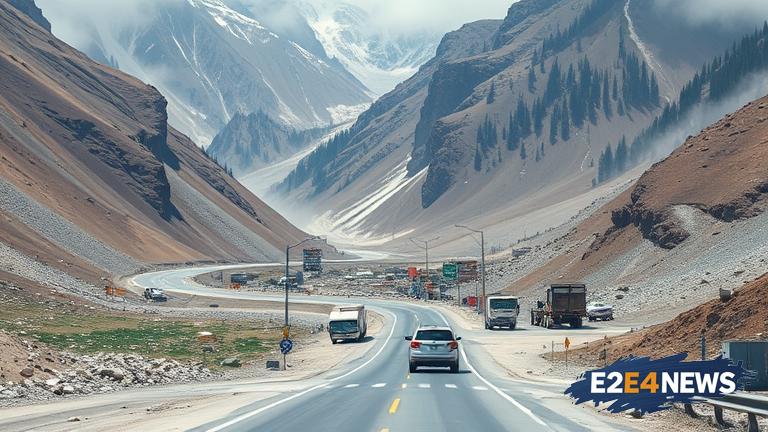The Gilgit-Baltistan region of Pakistan is facing a severe crisis as the Gilgit-Shandur Road, a vital transportation artery, remains blocked for the fifth consecutive day. The roadblock has resulted in the isolation of many areas in GBS and Ghizer, leaving residents without access to essential services and supplies. The situation has been exacerbated by the region’s rugged terrain and harsh weather conditions, making it difficult for authorities to clear the blockage. The Gilgit-Shandur Road is a critical route that connects the region to the rest of Pakistan, and its closure has had a devastating impact on the local economy and daily life. Residents are struggling to access basic necessities like food, medicine, and fuel, and many are being forced to take lengthy detours to reach their destinations. The roadblock has also disrupted communication services, leaving many areas without phone or internet connectivity. The authorities have been working to clear the blockage, but their efforts have been hindered by the region’s challenging geography and limited resources. The Gilgit-Baltistan region is prone to natural disasters like landslides and floods, which can cause widespread damage to infrastructure and disrupt daily life. The region’s economy is largely dependent on tourism, and the roadblock has had a significant impact on the local tourism industry. Many tourists have been forced to cancel their plans, resulting in significant financial losses for local businesses. The roadblock has also affected the region’s agricultural sector, as farmers are struggling to transport their produce to markets. The situation has been further complicated by the region’s limited access to healthcare services, and many residents are being forced to travel long distances to receive medical attention. The authorities have been working to provide relief to affected areas, but their efforts have been hindered by the region’s limited resources and infrastructure. The Gilgit-Baltistan region is a strategically important area, and the roadblock has raised concerns about the region’s security and stability. The situation has been condemned by local leaders, who have called for immediate action to clear the blockage and restore access to essential services. The roadblock has also highlighted the need for improved infrastructure and emergency response systems in the region. The authorities have been working to develop a comprehensive plan to address the region’s infrastructure needs, but the process has been slow due to limited resources and bureaucratic delays. The Gilgit-Baltistan region is a beautiful and diverse area, with a rich cultural heritage and stunning natural scenery. However, the region’s rugged terrain and harsh weather conditions make it a challenging place to live and work. The roadblock has had a significant impact on the region’s quality of life, and residents are calling for urgent action to address the situation. The authorities have been working to provide support to affected areas, but more needs to be done to address the region’s long-term infrastructure needs. The situation has been closely monitored by international organizations, which have expressed concern about the impact of the roadblock on the region’s economy and daily life. The Gilgit-Baltistan region is an important part of Pakistan, and the roadblock has highlighted the need for improved infrastructure and emergency response systems in the region. The authorities have been working to develop a comprehensive plan to address the region’s infrastructure needs, but the process has been slow due to limited resources and bureaucratic delays.




